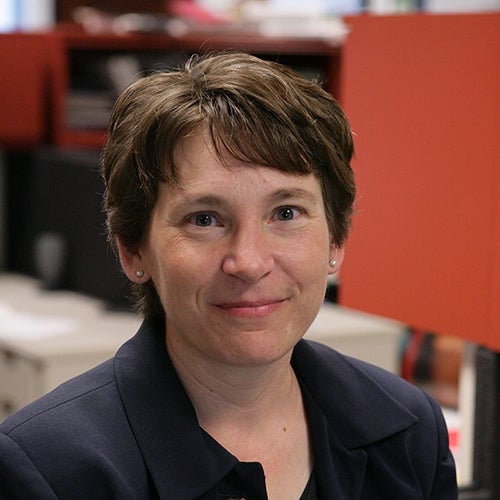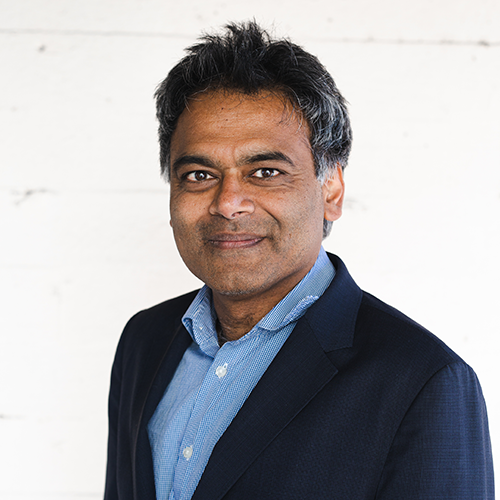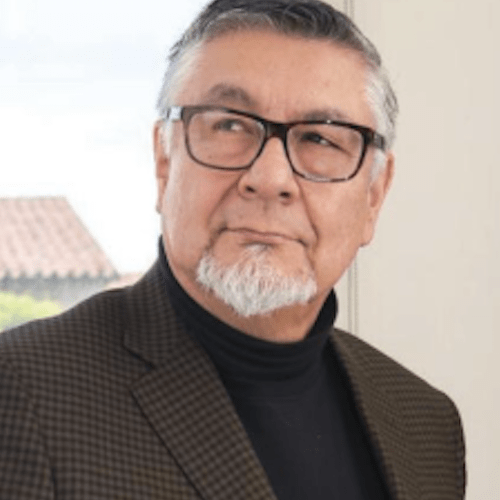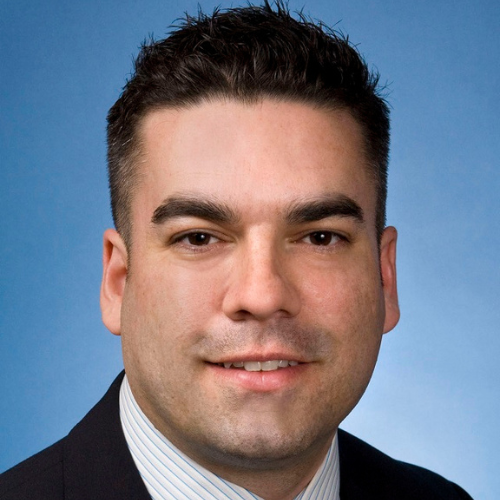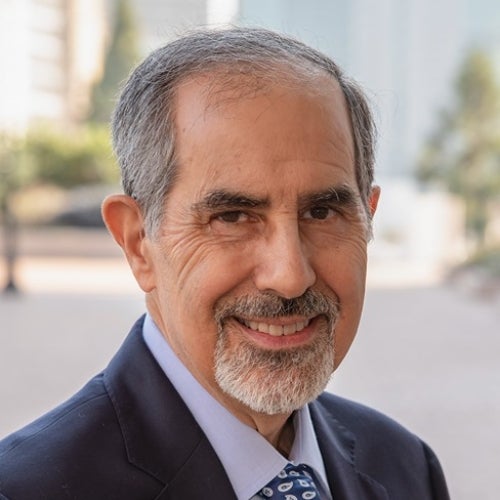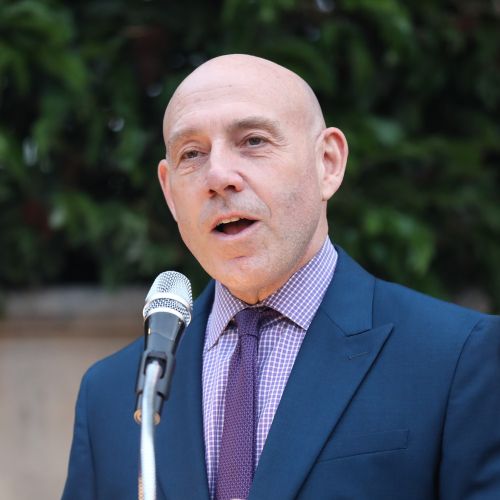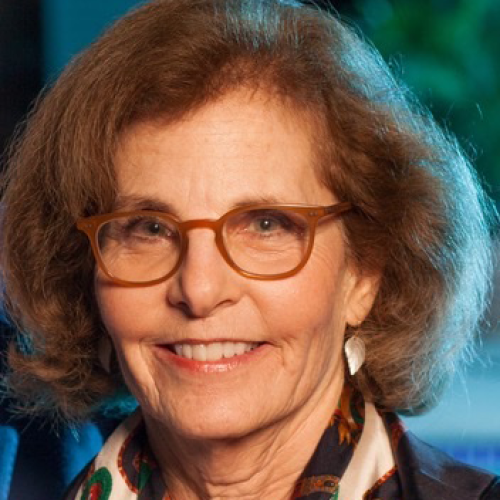Global study finds critical gaps in workplace protections
Laws prohibiting discrimination are key to ensuring equal economic opportunity, UCLA researchers say.

As throngs of people around the world stand in solidarity with American protesters calling for an end to racial injustice, a sweeping study of 193 countries by the UCLA WORLD Policy Analysis Center reveals critical gaps in legal protections against discrimination on the job.
Nearly one in four countries continue to have no legal protection from discrimination at work based on race and ethnicity, according to the study, just published in the journal Equality, Diversity and Inclusion.
This is not a question of a nation’s resources, researchers found. In fact, high-income countries do slightly worse: 28% of high-income countries fail to have any protections, compared to 19% of low-income countries and 23% of middle-income countries.
Even in countries that prohibit discrimination, substantial gaps in legal protections exist. Globally, 51% of countries offer no protection from retaliation against workers who report discriminatory treatment based on race or ethnicity, preventing individuals from accessing justice, the study revealed.
Moreover, laws against discrimination often provided only partial protection or failed to specify areas covered. The study analyzed laws and regulations governing hiring, pay, promotions and demotions, terminations and harassment in all 193 members of the United Nations.
“Discrimination at work persists across countries, but there is powerful evidence that anti-discrimination laws can make a difference,” said Jody Heymann, founder of the WORLD Policy Analysis Center and a distinguished professor of public policy, health policy and management, and medicine at UCLA. “All the world’s countries have agreed to address inequality, over and over again, at the U.N. This cannot be achieved without providing legal guarantees to non-discrimination at work for all people.”
In addition to race and ethnicity, WORLD researchers assessed gaps in national legislation protecting against discrimination based on sex, parenting status, gender identity, sexual orientation, migrant status and foreign national origin, among other groupings. Among the findings:
- 53% of the countries do not guarantee equal pay for work of equal value based on sex
- 62% do not prohibit discrimination based on parenting status
- 68% do not guarantee protection from discrimination based on sexual orientation
- 90% do not guarantee protection from discrimination at work based on gender identity
- 62% do not guarantee protection from discrimination based on migrant status
- 62% do not guarantee protection from discrimination based on foreign national origin
“Equal access to decent work is one of the most promising ways to end cycles of poverty, yet discrimination on the job persists,” said study co-author Amy Raub, principal research analyst at WORLD. “Legal protection from workplace discrimination is a critical first step to ensuring equal opportunities for economic success.”
In addition to the newly published research, the WORLD Policy Analysis Center has posted detailed data, maps, charts and policy briefs on workplace discrimination in four categories: race and ethnicity, sex, sexual orientation and gender identity, and migrant status.
The WORLD Policy Analysis Center at UCLA is a nonprofit policy research center that aims to improve the quantity and quality of globally comparative data on policies affecting human health, development, well-being and equity. With this data, WORLD informs policy debates and advances efforts to improve government transparency and accountability. The center’s founding director, Jody Heymann, is a distinguished professor at the Fielding School of Public Health, Luskin School of Public Affairs and David Geffen School of Medicine. She is also dean emeritus of the Fielding School.
The UCLA Fielding School of Public Health, founded in 1961, is dedicated to enhancing the public's health by conducting innovative research, training future leaders and health professionals from diverse backgrounds, translating research into policy and practice, and serving our local communities and the communities of the nation and the world. The school has 690 students from 25 nations engaged in carrying out the vision of building healthy futures in greater Los Angeles, California, the nation and the world
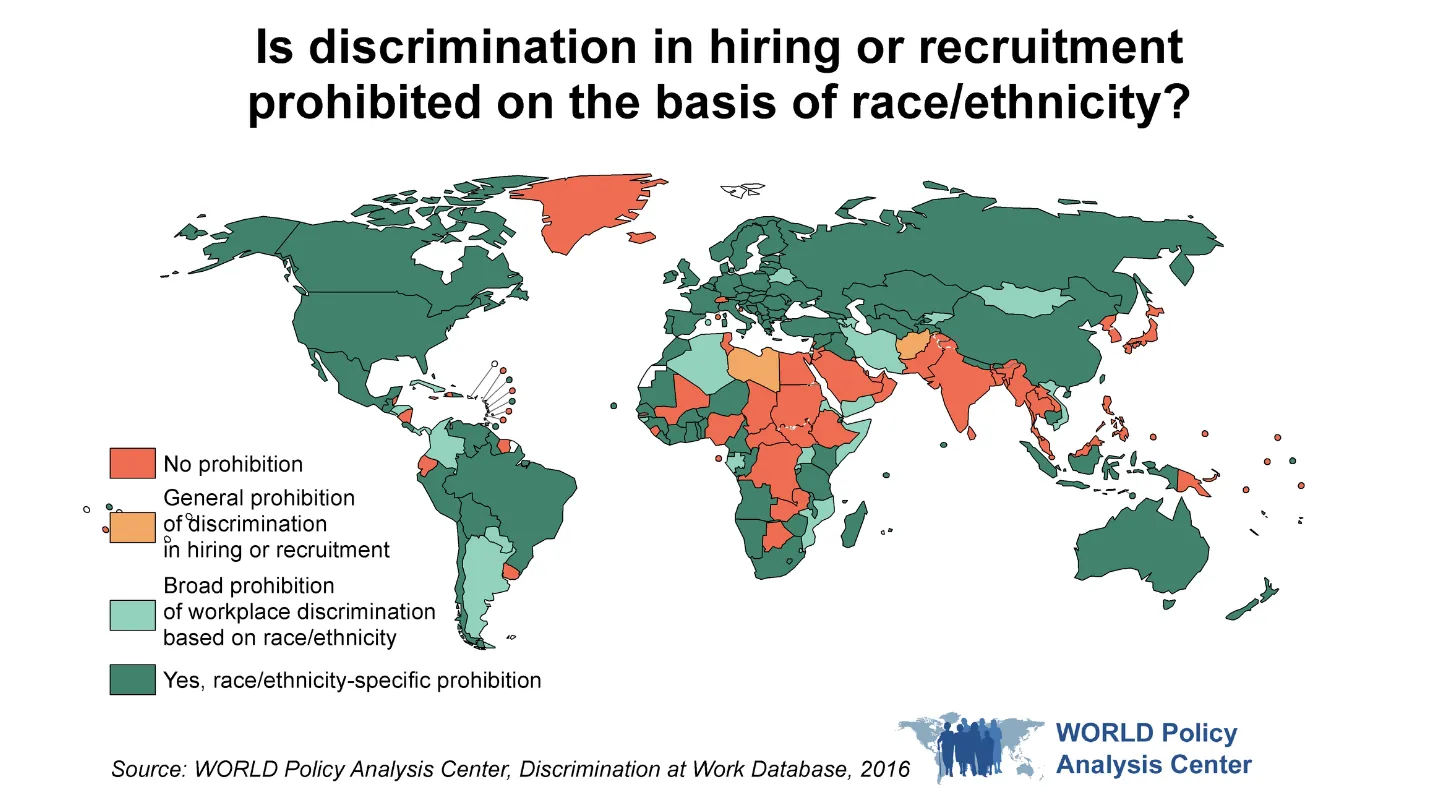
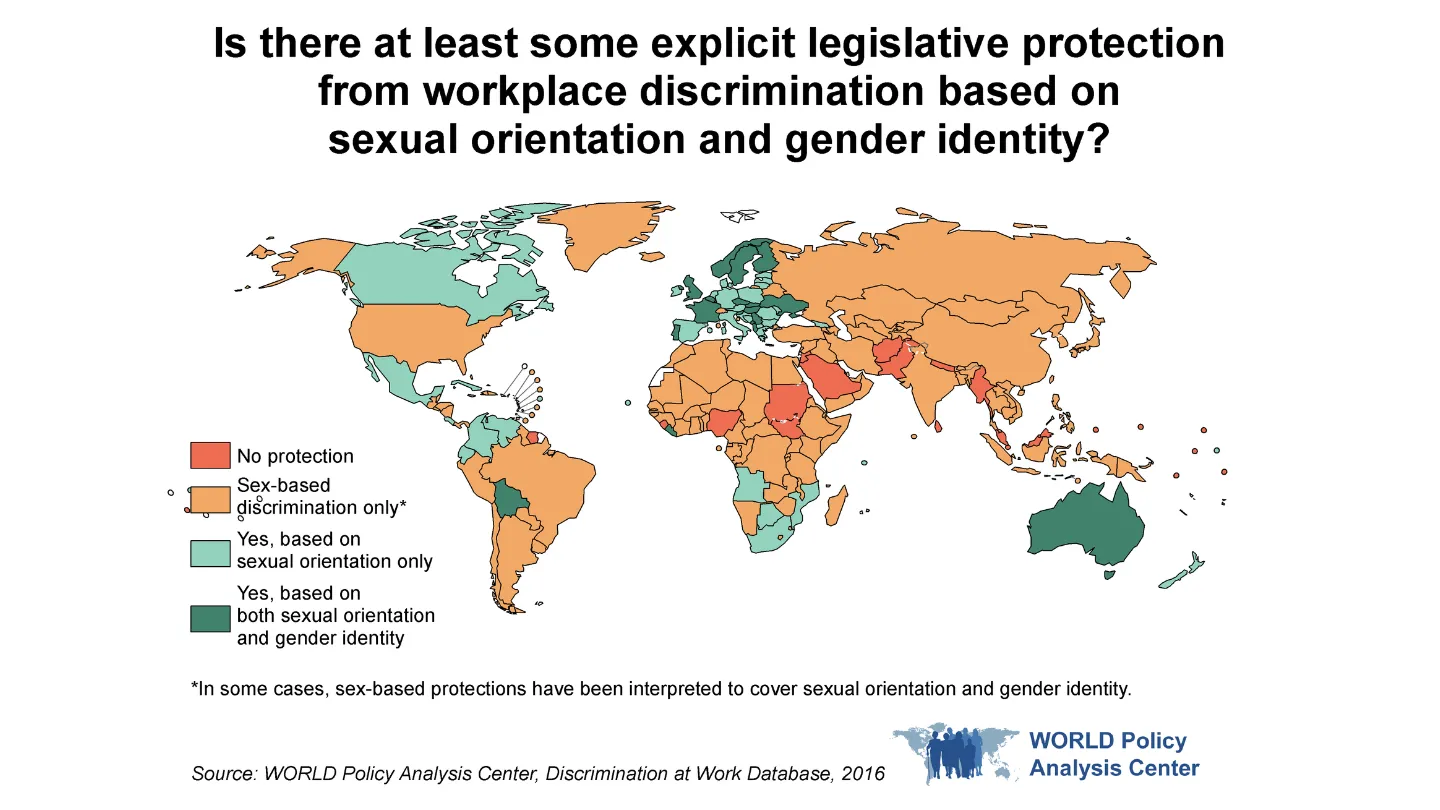
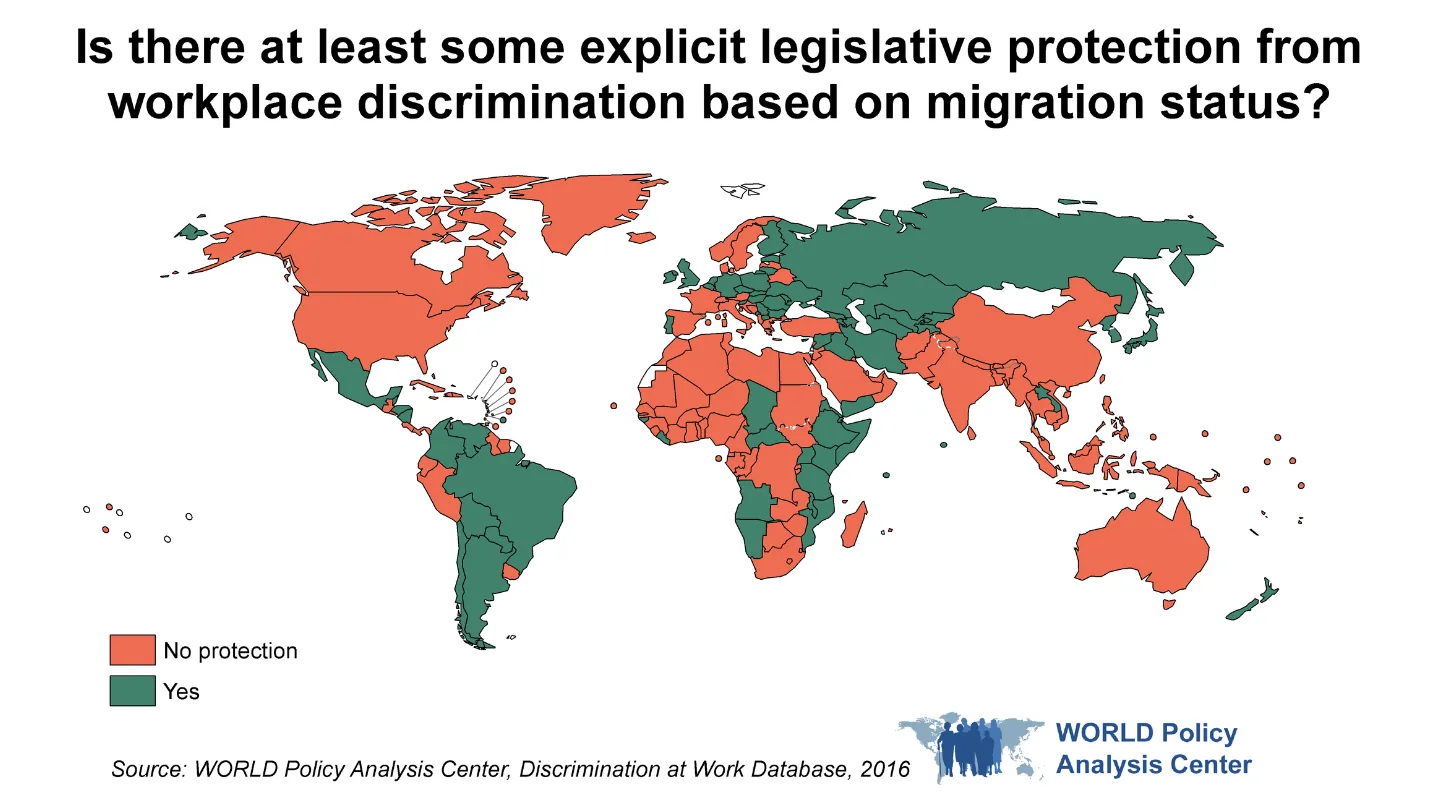
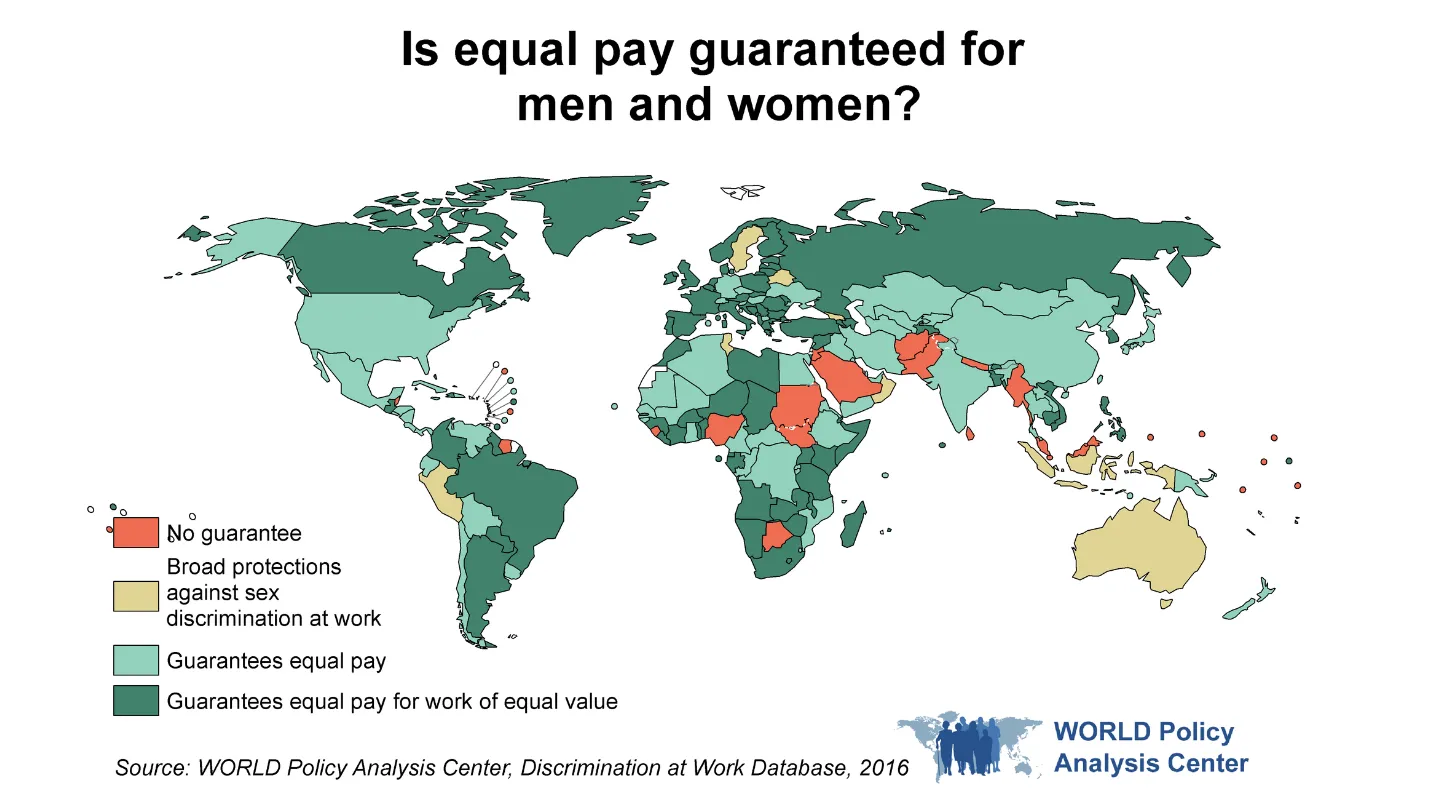
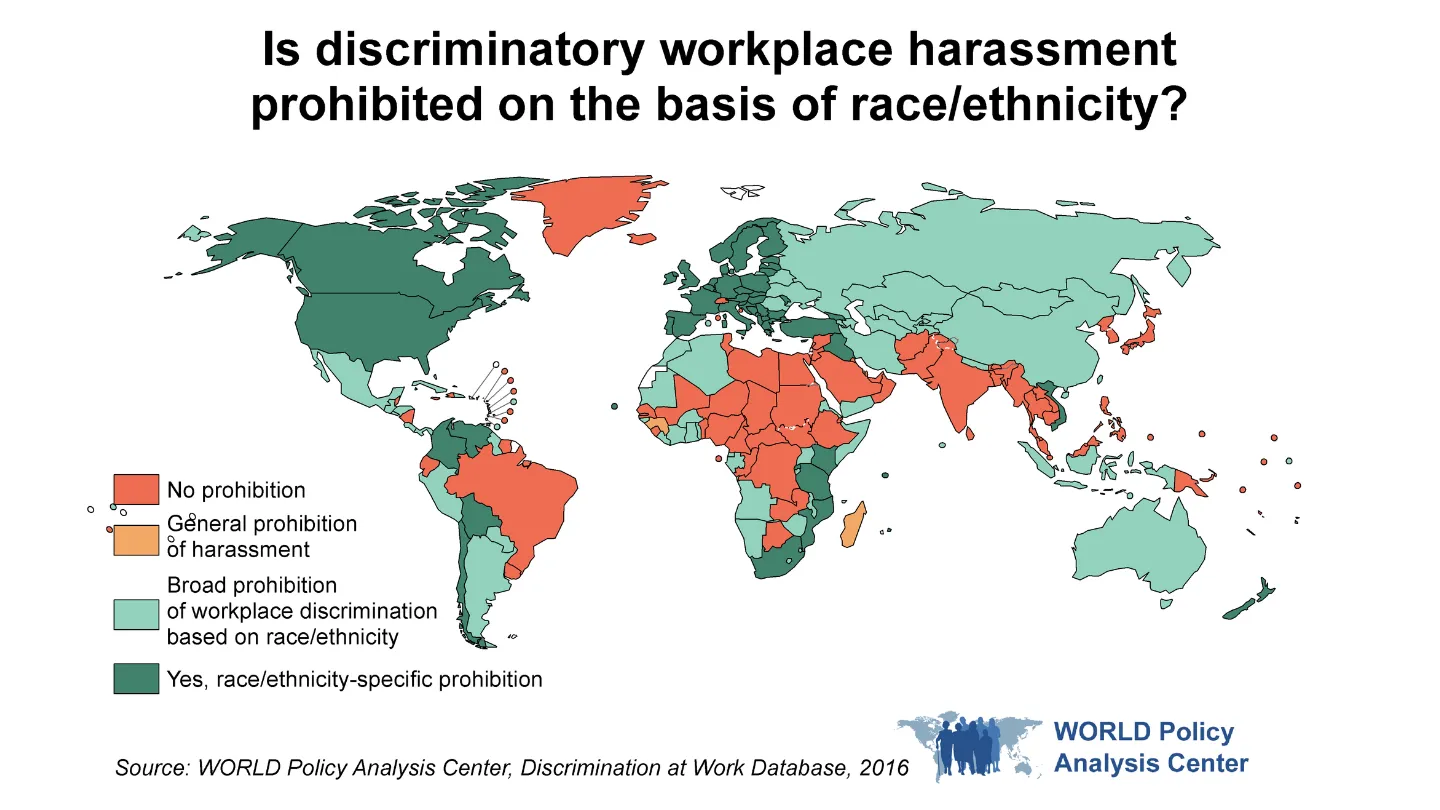
Attachments
-
Prohibiting Racial and Ethnic Discrimination in the Workplace
-
Prohibiting Workplace Discrimination Based on Sexual Orientation and Gender Identity
-
Prohibiting Sex Discrimination in the Workplace
-
Prohibiting Discrimination Against Migrants in the Workplace
-
"Legislative approaches to nondiscrimination at work: a comparative analysis across 13 groups in 193 countries"
Faculty Referenced by this Article


Professor of Community Health Sciences & Health Policy and Management, and Associate Dean for Research

EMPH Academic Program Director with expertise in healthcare marketing, finance, and reproductive health policy, teaching in the EMPH, MPH, MHA program

Dr. Ron Andersen is the Wasserman Professor Emeritus in the UCLA Departments of Health Policy and Management.
Nationally recognized health services researcher and sociomedical scientist with 25+ years' experience in effectiveness and implementation research.

Dr. Michelle S. Keller is a health services researcher whose research focuses on the use and prescribing of high-risk medications.
















